3 Keys to Overcome Email Overload – Part 7: Mental health & well being
This is the 12th in a series of blog posts designed to help you recognise the profound and far-reaching impact email overload has in your life and to offer solutions to help you overcome the challenges it presents.
There are 7 Critical Impacts of Information & Email Overload.
Impact #7: Mental Health & Well-being
The impact of email overload extends beyond the borders of the workplace. It also impacts our mental health and well-being. The first of these impacts is;
Chronic distraction and Attention Deficit Disorder
David Meyer is professor of psychology at the University of Michigan. In 1995 his son was killed by a distracted driver who ran a red light. Meyer’s speciality was attention: how we focus on one thing rather than another. Attention comes naturally to us; attending to what matters is how we survive and define ourselves.
The opposite of attention is distraction, an unnatural condition and one that, as Meyer discovered in 1995, kills. Now he is convinced that chronic, long-term distraction is as dangerous as cigarette smoking.
In particular, there is the great myth of multitasking. No human being, he says, can effectively write an e-mail and speak on the telephone. Both activities use language and the language channel in the brain can’t cope.
Multi-taskers fool themselves by rapidly switching attention and, as a result, their output deteriorates. The same thing happens if you talk on a mobile phone while driving – even legally with a hands-free kit. How many times have you driven while talking on the phone only to get to your destination with no recollection of how you actually go there?
You listen to language on the phone and lose the ability to take in the language of the road conditions and signage. Worst of all is if your caller describes something visual, like a wallpaper pattern or a picture. As you imagine this, your visual channel gets clogged and you start losing your sense of the road ahead. At its worst, distraction can kill either you or others (or both).
What this means is . . .

Chronic distraction, from which we all now suffer, kills you more slowly. Meyer says there is evidence that people in chronically distracted jobs are, in early middle age, appearing with the same symptoms of burn-out as air traffic controllers. They might have stress-related diseases, even irreversible brain damage. But the damage is not caused by overwork, it’s caused by multiple distracted work.
Attention Deficit Disorder
There’s a term for what we’re becoming due to this bombardment of information: “pseudo ADD”. This term was coined by two Harvard psychology professors who noticed that many people are experiencing a shortened attention span because of advances in communication. Those affected do not have what is considered clinical Attention Deficit Disorder; they simply cannot focus on a task without compulsively checking their e-mail, voice mail and/or surfing the Internet.
In fact, a sustained negative neurological effect of information overload has been identified by psychiatrist E.M. Hallowell. He has called this effect Attention Deficit Trait, or ADT.
So, what can do you about it?
Here are a 4 quick ideas to help reduce impact of email overload as it relates to effective communication
Minimise or even eliminate email interruptions
Single-task rather than multi-task – see previous post on the myth of multi-tasking
Schedule designated blocks of time on a regular basis for thinking and planning
Go for walk during day – not only does this help ‘short-circuit’ the hyper-kinetic workplace environment, provide fresh air, exercise and blood flow, but it also allows you to get into that reflective state of mind and thinking where great ideas, solutions and inspiration so often comes from.
Why this ezine/blog?
Email is the #1 productivity killer - many say it’s the single biggest waster of time in the modern workplace. It occupies 2.6 hours a day, but 25-28% of this time is unproductive. And volumes are increasing, despite the rise and rise of social media and other collaborative tools. More and more, email has taken over your day, your week, your work, your life!
This series of ezines is designed to help you recognise the profound and far-reaching impact email overload has in your life and offer solutions to help you overcome the challenges it presents. The aim is to restore email to its rightful place as a facilitator of improved productivity, so that you are the master and it is the slave (rather than the other way round).
All the best!

